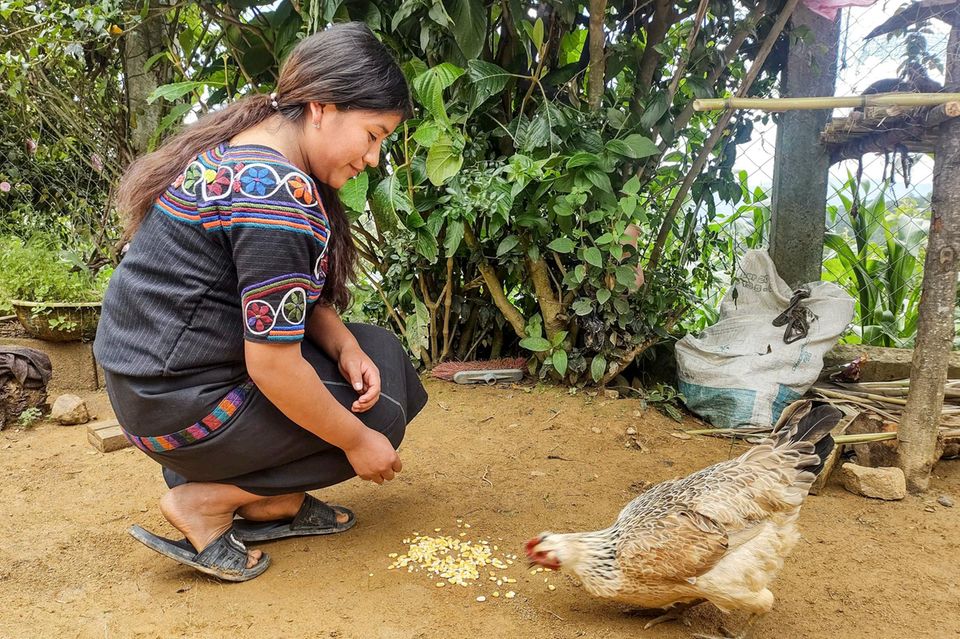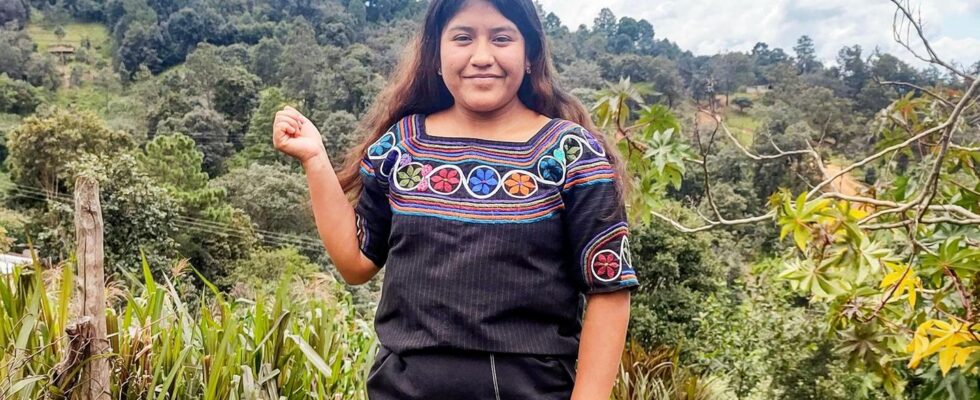Guatemala
“You don’t have to emigrate to have an economic basis”
From harvest helper to entrepreneur: Juana dares to try out new ways in her village.
© Plan International / PR
Her dream used to be: a good life in the USA
Your dream today: a good life in Guatemala
Who should help her: chickens
Every few weeks, Juana sees them moving away – the young people from her village. Sometimes ten a year, sometimes 15. She has already thought about it: she wanted to do it twice, the eldest daughter of two harvest workers from the Quiché department in the northwest Guatemala set out to seek their fortune almost 3,000 kilometers further north in the USA. As a harvest worker, she thought, she could earn enough there to send money to her parents and her two younger siblings – and to finance her studies. Tens of thousands leave the country every year, often on life-threatening escape routes.
But Juana stayed. Both times. Because she didn’t trust the emigrants’ flowery stories. But also because three years ago, when she was just 15, a door suddenly opened for her in Quiché. The children’s rights organization Plan International trained around 30 young people in their village to become “Champions of Change”. For five months they learned about their rights and learned how important equality and social commitment are in order to enable everyone in the region to have a good life. Juana joined in – and immediately afterwards took part in a second project: a six-month course in which she and four others were taught how to start a business and make money from it.

Juana grew up with chickens – now she tries to support her family by buying and selling poultry.
© Plan International / PR
“You don’t have to emigrate to have an economic basis,” that’s what she realized at the time, she says. And she started immediately: In addition to her main job as a harvest worker, she began to raise chickens. Maybe she would soon be able to support her family with it…
The plan changed
That was more difficult than expected: the animals weren’t growing fast enough, and suddenly feed prices also rose. But Juana was not discouraged. She changed her business idea: she now regularly buys chickens from a supplier for 15 quetzals per pound and sells them to people in the village for 16 quetzals per pound, making around 0.12 euros in profit per pound.
This enabled her and her family to cushion the rise in food prices. Corn and beans, says Juana, cost twice as much today as they did in 2021. Above all, her experiences as a founder led Juana to completely reinvent herself: The cheerful but somewhat disorientated girl who helped with the field work became a respected entrepreneur in the village – a role model. “Fight for your dreams and you will find opportunities here too,” she now advises the other girls. If the first path doesn’t lead to your goal, it’s always worth trying a second one.
Juana alone will not stop the flow of emigrants. But anyone who – like she once – is thinking about leaving now has the proof in front of their eyes: building something up will work here too. And who knows where Juana will take her energy. After having to miss five years of school due to lack of money, she can now go back to work alongside her job. She will soon complete the 9th grade. Does she want to study then? Juana isn’t sure yet. The only thing that is clear is that your business should continue to grow “until I earn so much that my parents no longer have to work as harvest helpers.”
